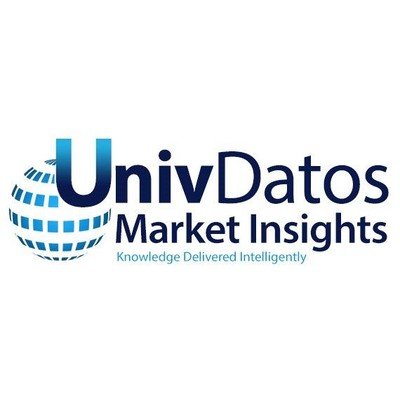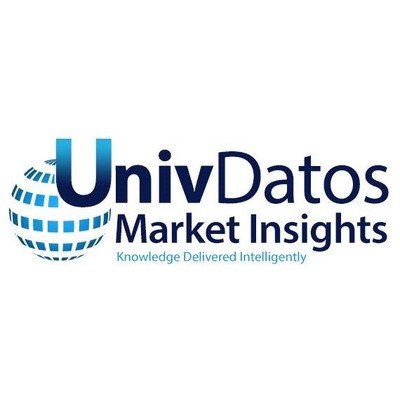China Makes A Significant Shift In Its Tone To Cryptocurrency3

The following are important insights recently highlighted in various mainstream news media regarding blockchain technology and cryptocurrencies in China. The media highlights include opinions and comments from the most prominent individuals and stakeholders, which VeChain has translated for our community.
The Boao Forum for Asia, Vice Chairman Zhou Xiaochuan Said: Digital currency should serve the real economy
Zhou Xiaochuan attended Boao Forum for Asia (Image source: Boao Forum for Asia)
The Boao Forum for Asia 2021 Annual Meeting was held in Boao, Hainan. As one of the most influential forum summits in the world today, a number of heavyweight guests from home and abroad delivered speeches and held discussions on hot topics. Zhou Xiaochuan, Vice Chairman of Boao Forum for Asia, 12th Vice Chairman of the National Committee of the Chinese People’s Political Consultative Conference and former Governor of the People’s Bank of China said that regardless of digital currency or digital assets, they all have to serve the real world. We have experienced the global financial crisis in 2008 and found that finance is detached from the real, such as the shadow banking and derivatives which have become purely speculative transactions between financial institutions, and there is no longer a connection with the real. Under this situation, it is easy to go wrong. In China, financial innovations have to be clear about its benefits to the real economy. (Source: Ifeng News)
PBOC Vice-Governor Li Bo Said: China considers cryptoassets as investment alternative
Li Bo attended Boao Forum for Asia (Image source: Boao Forum for Asia)
China considers cryptoassets as investment alternatives. The nation is planning to improve the regulatory environment for these alternative investments, to ensure that speculative activity will not result in serious financial risks, said PBOC Vice-Governor Li Bo. “Before the launch of any regulatory measures, we will maintain what we are doing right now,” Li said during a session discussion of the Boao Forum for Asia Annual Conference 2021. (Source: Chinadaily)
The Paper (China state-affiliated media) commented: Bitcoin has largely gained the same consensus and recognition as mainstream currencies and assets
Since the last two years, not only middle-class people are starting to buy Bitcoin as an asset allocation, but even many professional financial advisors are adding Bitcoin to their clients’ asset allocation plans. From its initial birth on the premise of faith and consensus to its small-scale circulation to its current fluctuating changes influenced by the complex global environment, Bitcoin, as well as Cryptocurrency has basically gained consensus and recognition worldwide for its value and role as a mainstream currency and asset. (Source: The Paper)
My parents are two of my best friends. Please do not tell 15-year-old me that, in 30 years, Mom and Dad are going to be two of his best friends. He will find that fact depressing. But it’s true. I’m proud of it.
The Leitch parents moved from rural Illinois to Winterville, Georgia about four years ago, after they retired, so they could be near my two young sons, their only grandchildren. After missing most of the boys’ first two years, they get to watch them grow up now. They know their teachers, they make them their favorite brands of mac-n-cheese, they get to go to all their baseball games. Dad helps me coach my younger son, Wynn’s, team, actually, and this year, because we’re trying to play Little League Baseball in a pandemic, he even built a little baseball-field-shaped rack with hooks for them to hang their masks when they go out onto the field. Isn’t it great?
I know they’re just here for the grandkids, but I couldn’t be more grateful to have my parents around, particularly during the pandemic, when they became central to our pod (and the primary source of my fret and worry; they’re in their early seventies, after all). They really are my friends. We go to dinner together, we watch sports and TV shows together, we drink and tell old stories together. We’re closer than we have ever been. It’s precisely the sort of relationship I hope to someday have with my children, when they are adults. One where we are not parent-and-child but simply old friends who know each other better than anyone in the world and can talk about anything. I look at these little boys and imagine them as adults. I cannot wait to see what they are like when they, like me, are 45.
But there’s a problem: I’m not sure I’m gonna make it to see them hit 45.
Don’t get me wrong: I think I’m pretty hale and hearty, and I don’t plan on shuffling off this mortal coil any time soon. But I, like my wife, did something different than our parents: We waited to have children. I spent my twenties and a large section of my thirties trying to establish my writing career and figure out, at a fundamental level, who deep down I really am. I made a bunch of dumb mistakes in that time, but because I didn’t have a family, no one really got hurt but myself. I’m glad I had that time: I’m a better person, husband and father because of it. My wife, who did the same thing, feels the same way.
But it’s not the only way to do this. My parents are happily married, 50 years now, but they are the first to admit that their long and healthy marriage is as much a product of good fortune as anything else. “I married your father because he looked good in his military uniform and he drove a cool car,” my mother is fond of saying. “It is just my dumb luck that he didn’t turn out to be an asshole. He could have been, and I would have had no idea. I was too young to know any better.”
And that, right there, is the difference. My father was 25 years old when I was born. I was 35 when my first son was born, and 37 when his younger brother was. So this time we have together now, my parents and I, the only way I’m going to get to have it with my children when they are 45 is if I’m able to do it well into my eighties. My parents are in good shape and anything but feeble and weak. But will they be that way in a decade?
I think about this every moment I spend with my parents. The friendship I have with them, will I be able to share it with my children? Will they drink beers and watch baseball with me? Or will they be too worried about their elderly, ill dad? Did the time I spend figuring myself out cost me in the long run? My dad once said that he feels like he was a parent before he had any idea of who he was, and he blames a lot of his missteps from that time on that fact. But he also wouldn’t do anything any different, because now he gets to spend more time with me and his grandkids. Will I be able to do the same? Will I regret that trade-off on the back end?
My twenties and thirties were important and valuable. But now that I’m in my forties, looking forward, I’m not sure they were important and valuable enough for me to miss all that they might make me miss. It’s a difference in the generations, I know. I’m hardly the first Gen X kid to get married and start a family a lot later than his Boomer parents. But as I get older, it doesn’t feel like a generational choice. It just feels like everything else does anymore— like I’m running out of time.
Will Leitch writes multiple pieces a week for Medium. Make sure to follow him right here. He lives in Athens, Georgia with his family and is the author of five books, including the upcoming novel How Lucky, to be released by Harper next month. He also writes a free weekly newsletter that you might enjoy.
There are significant reasons to size up a person’s mental acuity. For example, if you are taking advice, interviewing, or communicating, it helps to know what you are working with. Many of the best managers are excellent at reading their audience.
If you are looking for a one-shot way to determine brilliance, stop reading now. If you are looking for exceptions to the following points, you’ll be able to find them. The following are correlative, not causal. This is an exercise in nuance. Because within nuance, you find most answers.
They Practice Intellectual Humility
I worked in finance and mostly hated it. However, one of the few perks was the people. The industry attracts and needs intelligent people. Consequently, hiring successful candidates mandated we get a quick read on them. Interviewing is tricky because everyone is putting their best foot forward and trying to sound smart, as perhaps they should.
A manager taught us a trick: ask a question the candidate won’t know the answer to. Then, observe how they act. A very good sign was when they could simply admit they didn’t know, rather than fake it and force-feed an answer.
This admission is a sign of intellectual humility, which is correlated to better decision-making. This is particularly useful in an industry plagued by arrogance. Intellectually humble people challenge their conclusions based on evidence and feedback from others. As a simplistic example, you’ll see this when people say, “From what I’ve seen, it could be true.” Rather than, “It’s definitely true.” They frame their observations as open to critique. They prize truth over ego.
Obvious Signs are Often a Valid Data Point
For example, people who refuse to social distance tend to be less intelligent. People who read in their free time skew smarter than those who don’t. Things that smart people tend to do, tend to be done by smarter people.
Many years ago, I was working retail at a used sports equipment store. A 10-year-old kid came in to buy a baseball helmet. I gave him the price. He held the helmet up, looked it over, then looked back at me, “Can you knock a few bucks off? I mean, look at these dents.” He pointed at the dents. I smiled and gave him a discount.
When he left, I thought, “That kid is going to do just fine.” Being crafty, demonstrating street smarts, and quick thinking is correlated to intelligence. In fact, Yale scientists found that street smarts are just as important for employees as their academic smarts. More plainly, you can be a mediocre student, with great street smarts, and go on to be very successful.
They are Meta, Literally
There is a newly popular phrase, “That is so meta.” Meta means something is self-referential. For example, a Medium article that is about Medium articles is meta. A video game where you play a character playing a video game is meta. The Onion famously did this with “World of World of Warcraft.”
Related to this, intelligent people often demonstrate metacognition. They talk about and analyze their own thought process. They are objective and critique their nature. They know when and how they perform best. A simple example of meta behavior is when someone says, “I need to put this on my calendar or I won’t hold myself accountable.” Unsurprisingly, people with high metacognition are often great students and employees. They leverage their self-awareness to their advantage.
They Know what Killed the Cat
Intelligent people tend to be curious. They have an itch to know more, to drill down on details, just for the sake of knowing. After all, that’s how we learn, right?
Curiosity is an indicator of intelligence in other animals too. For example, there was a study involving three language-trained chimps. Their job was to use a keyboard to name what food was in an unreachable container. The prize was, you guessed it, food. When the test food was visible, they just hit the correct button and got the food. When the food was hidden amongst various containers, the smarter chimps inspected and tried to peek inside the containers before giving their answers. They knew the odds of winning were higher if they learned more.
This chimp study is a basic example but reveals the power of information seeking (curiosity). And don’t forget, we share 98.8% of our DNA with chimps. The smartest chimps are measured by their ability to patiently learn and troubleshoot problems. Sound familiar?
The Strongest Indicator of Intelligence
My dad was an engineering major at the Naval Academy decades ago. He doesn’t brag very often about other men. It takes a lot to impress him. But one of his roommates, Charlie was a special classmate.
They were both in an industrial engineering class. It was the hardest class he’d ever taken. Dad said they’d come back to the room. He’d study for hours while Charlie only studied 20 minutes and then fiddled with his guitar. That roommate still got better grades than my dad, who is fairly bright, and it ticked him off to no end. That roommate went on to become a college professor.
At the pulsing core of intelligence is the ability to simplify complex problems and solve them, as Charlie did. Often, that skill is genetic. The people themselves don’t know how they do it. You can develop the skill as well. A physics professor once told me that, “A big problem is just a bunch of small problems combined. Learn to separate them out.” It’s all a matter of approach.
Conclusion and Takeaway
Society has placed a massive priority on intelligence. We often feel pressure to be smart and value those who are. Never forget the value of kindness and respect. Each person has their own combination of skills and gifts and should be respected as such.
Remember, outside of a psychologist-provided test, there’s no real way to gauge intelligence in one data-point. But if they do these five things, there is a very good chance they are quite smart.
They demonstrate a curiosity to learn more information.
They can openly admit when they don’t know something. They know and operate within their limits.
They can break down complex problems and cut straight to a solution.
They have an acute awareness of their own thought process. They critique and understand it. They use that knowledge to their advantage.
They display obvious signs of intelligence. They think quickly on their feet and have situational awareness. They wear a mask during a pandemic.
Subscribe to Relax and Read for more.
https://www.geogebra.org/m/e8bkwd2u
https://www.geogebra.org/m/uwuphskg
https://www.geogebra.org/m/yuffznsg
https://www.geogebra.org/m/tgjq2qze
https://www.geogebra.org/m/jpp6nr6k

Smart Plantation Management Systems Market Report, Size 2021: Global Trends, Top Players Updates
- Smart Plantation Management Systems Market Report, Size 2021: Global Trends, Top Players Updates, Future Plans, Industry Impact and Forecast till 2027

Thousands of passengers were booked to fly between the two nations on Monday.
- "I couldnt sleep last night, it has been very exciting," she said. "We are just... happy that it has happened and were able to live a normal life

Brain Monitoring Market Report - Industry Size, Growth Drivers, Regional Study 2027
- The Brain Monitoring market report has been aggregated by collecting informative data of various dynamics such as market drivers, restraints

the Turkish national team uploaded a table of Group H -- with7
- the Turkish national team uploaded a table of Group H -- with Turkey still top following the 1-1 draw -- with the players saluteb7